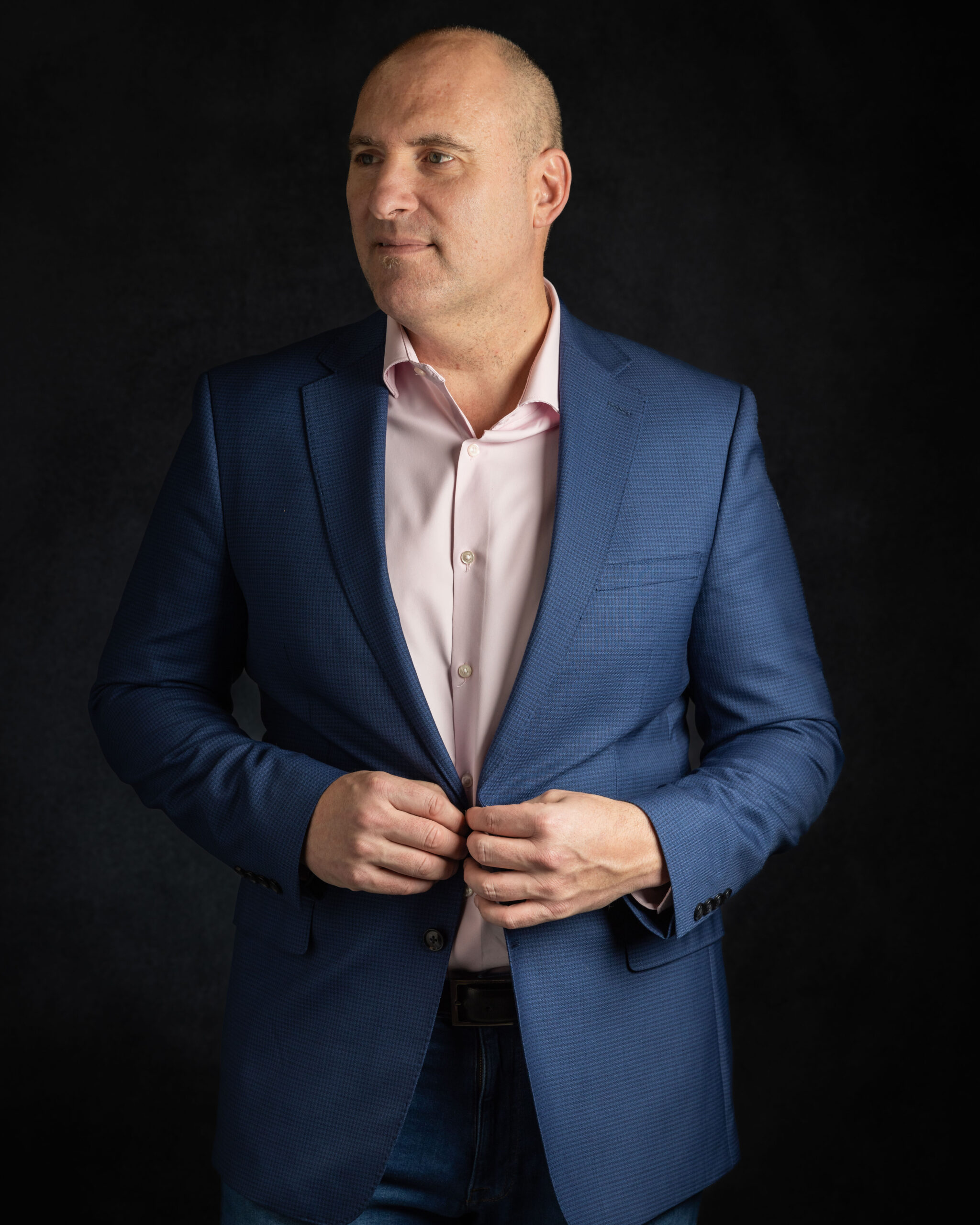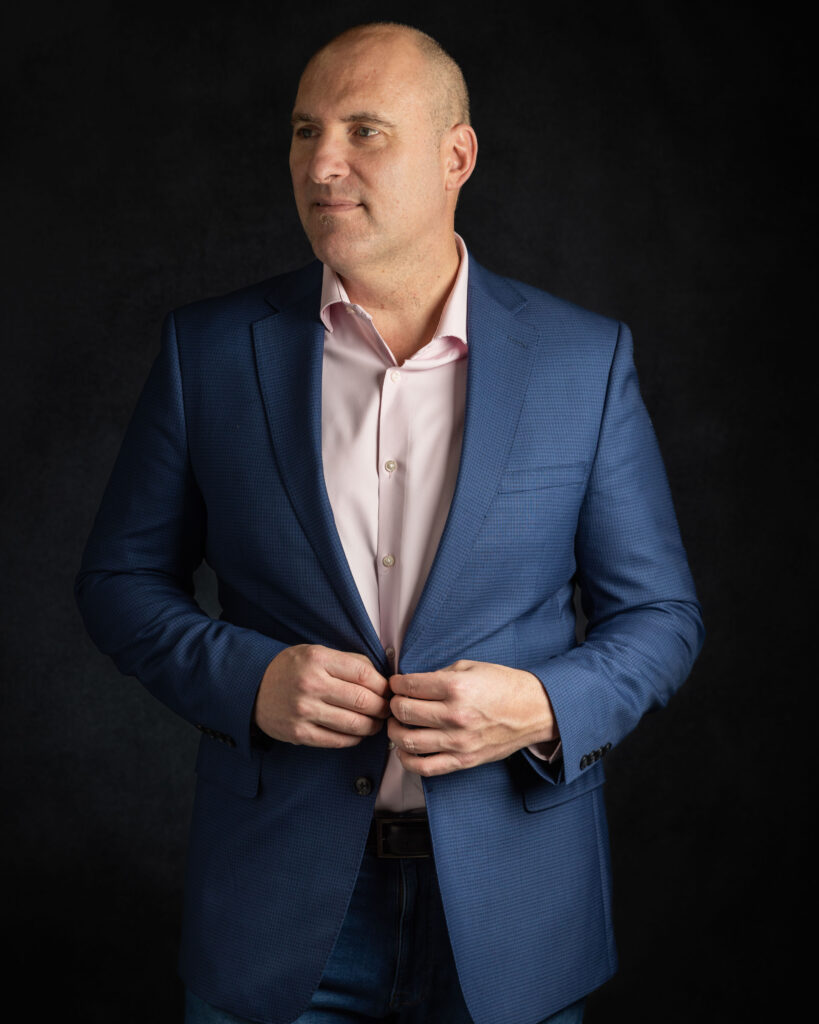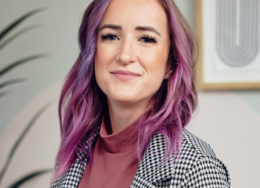Burned Out and Still Not Building Wealth? Try These Retirement Strategies and Diversifying Income Ideas for Practice Owners with Eric Miller
-
 With Eric Miller
With Eric Miller

Burned Out and Still Not Building Wealth? Try These Retirement Strategies and Diversifying Income Ideas for Practice Owners with Eric Miller
- Burned Out and Still Not Building Wealth? Try These Retirement Strategies and Diversifying Income Ideas for Practice Owners with Eric Miller 00:00
Feeling stuck in your group practice and wondering how to finally build real wealth as a practice owner?
If you’ve been pouring everything into your group practice but still feel like you’re not gaining traction financially, this episode is for you. I sat down with Eric Miller, co-owner of Econologics Financial Advisors, to talk about the retirement strategies and financial freedom tips he suggests to help practice owners turn burnout into long-term success.
We talk about how to stop relying on traditional retirement plans that don’t serve practice owners, and instead focus on building true wealth through diversifying income and treating your business like the investment it is.
Whether you’re deep into your group practice journey or just starting to scale, these retirement strategies will help you shift your financial outlook and take control of your future.
Here’s what we dive into in this episode:
- Why traditional retirement strategies often fail practice owners, and what to focus on instead if you want lasting success
- How to start diversifying income beyond just adding new services — and why that matters for your long-term financial security
- The weekly habit Eric swears by that boosts income and supports sustainable diversifying income streams
- The biggest financial mistakes practice owners make — and the simple financial freedom tips that can help you avoid them
- What your practice space, staff, and systems might be hiding — and how to use them more effectively before expanding
If you’ve been looking for a roadmap to smarter retirement strategies, or just want some no-fluff financial freedom tips you can actually use, you’re going to love this conversation.
Eric and I talk honestly about what it takes to create multiple diversifying income streams, how to think like an investor, and why now is the time for every practice owner to start planning for the future.
LINKS:
Need extra support? Join The Exchange, a membership community just for group practice owners.
The Group Practice Exchange Programs + Courses
The Accountability Equation™ Quiz
The Accountability Equation Book
Group Practice Forecasting Support GPT
CONNECT WITH MAUREEN HERMANN & THE GROUP PRACTICE EXCHANGE:
CONNECT WITH ERIC MILLER:
Book: How To Become a Financial Beast
Free booklet: Financial Strategies Every Practice Owner Needs to Implement to Build Wealth
SPONSORS:
TherapyNotes: An EHR software that helps behavioral health professionals manage their practice with confidence and efficiency. Go to therapynotes.com/r/thegrouppracticeexchange for two free months!
GreenOak Accounting: An accounting firm that specializes in working with group practices. Mention TGPE to get $100 off your first month!
Transcript: Eric Miller
[00:00:00] Eric Miller: Most people did not get into healthcare to get rich. But I don’t think that means that you have to live small. I really do think that you can have both. The thing I really try to get through to people is like this practice of yours has the ability to be an investment in a really beneficial long-term investment.
[00:00:17] Eric Miller: As long as you treat it like that, and you know, I always tell people, I go, you gotta love yourself. You gotta pay yourself. Those two things are not exclusive.
[00:00:27] Maureen Hermann: Welcome to the Group Practice Exchange Podcast, where we talk about all things related to group practice ownership. I’m your host, Maureen Hermann.
[00:00:38] Maureen Hermann: Therapy Notes is changing the game for mental health professionals. It’s an all-in-one EHR practice management and billing platform that actually makes running your practice easier from secure client messaging and scheduling to notes and billing. Everything’s in one place and their 24 7 customer support is truly unmatched.
[00:00:54] Maureen Hermann: You get a real person, a live human every single time you call their latest update. Therapy Fuel is a total time saver. It’s a built-in AI tool that helps you get through documentation faster. Think progress notes from transcripts or summaries, contact notes created from secure messages. And automated summaries of client history forms.
[00:01:13] Maureen Hermann: Users are already saying that it’s saving them hours every week. Other new features worth noting is automated recurring payments for clients, electronic billing for secondary insurance, and a growing outcome measures library to make tracking progress even smoother. If you’ve been on the fence, now’s the time to try it.
[00:01:30] Maureen Hermann: Head over to therapy notes.com, click start My Free trial, and use the promo code TGPE to get your first two months for free. See why so many therapists trust therapy notes to support their practice, including me. Struggling with your practice’s finances. Let me tell you about Green Oak Accounting. Green Oak is the industry leader in mental health accounting, and they know exactly what it takes to help your practice thrive, especially when you’re scaling up.
[00:01:55] Maureen Hermann: Green Oak is set apart from the rest by their deep industry knowledge and top-notch advisory and CFO services. Plus, they offer traditional accounting services like bookkeeping, tax prep, valuations, and so much more. Here’s what’s in it for you. Peace of mind, financial clarity, and the potential to significantly grow your practice and profits.
[00:02:16] Maureen Hermann: In fact, green Oak has the most impact with practices looking for financial guidance when leveling up thanks to their CFO services. And they’re not just about crunching numbers. They also offer a mix of resources like the Therapy for Your Money podcast, the Profit First for therapist book and self-guided courses to keep you informed and empowered in growing your practice.
[00:02:39] Maureen Hermann: Ready to transform your practice’s financial health. Visit www.greenoakaccounting.com to explore all that they have to offer Green Oak accounting, your partner in financial prosperity.
[00:02:56] Maureen Hermann: Hey everyone. Welcome back to another episode. Today I have Eric Miller on and we’re gonna be talking about. Why traditional retirement plans fail practice owners, and how to build financial certainty. I’m excited for this episode because it’s obviously all things related to financial planning and retirement planning is not my strong suit, so I love whenever I get a guest on that is an expert in this to chat with us on how to just position ourselves in a better way.
[00:03:22] Maureen Hermann: Eric Miller is a seasoned financial planning professional with over 20 years of experience dedicated to empowering private practice owners and their associates. As the co-owner and CFO of Econ Logics Financial Advisors, a registered investment advisor, Eric specializes in strategic financial planning, including investments, retirement, asset protection, tax strategies, debt elimination, and business transition planning.
[00:03:46] Maureen Hermann: Eric is also a bestselling author of How to Become a Financial Beast and The Financial Beast Podcast. So. Hi. Thanks for coming on.
[00:03:54] Eric Miller: No problem. Thanks for having me on. I appreciate it.
[00:03:57] Maureen Hermann: Yeah. So I’m gonna start with like the big, very broad question and then we can get into the of it. But like, let’s start with, because I think most of my listeners, obviously everyone’s a, a group practice owner or in the beginning stages of hiring their first few associates.
[00:04:13] Maureen Hermann: Can you start with how do regular retirement plans fall short for group practice owners? I know all of us, we usually start with. Getting health insurance and retirement plans of some sort for our teams. And I think we all just jump into the like the regular, very basic plans. Yeah. So if you can start with that, that’d be good.
[00:04:32] Eric Miller: I think to even go back a little bit further, people in the healthcare industry right here, I feel like they’re very underserved when it comes to getting help financially. Most people did not get into healthcare to get rich. I don’t think that means that you have to live small. I really do think that you can have both, but it’s not really taught to people when it comes to, you know, learning about finances, learning about, you know, business, cash flow, learning about all these things.
[00:04:59] Eric Miller: So that’s the area that I, I can help. I got a healthcare background. My family was in healthcare, so I just, I saw the need for them to get extra help, so to speak, when it came to their personal finances. And you’re right. What ends up happening is that, you know, you start your practice and you go into it, it feels like a job.
[00:05:19] Eric Miller: More than anything else. But the thing I really try to get through to people is like, this practice of yours has the ability to be an investment in a really beneficial, long-term investment. As long as you treat it like that. And I think that’s, that’s the first separation because most, most advisors that you talk to, they’re gonna say, Hey, you should, you should get a 401k plan or a retirement plan, or you should put money into an IRA.
[00:05:42] Eric Miller: And all those things are okay, but if you really wanna set yourself up in the next 10 or 15 years, you really need to utilize the practice. I. Better as a vehicle to create additional income sources. And that’s probably one of the things that I do that our firm does probably better than I think most traditional advisors would do.
[00:06:05] Maureen Hermann: Okay, so go deeper into this aspect. So I talk a lot with a practice owners about diversifying your income, not having just one revenue stream that you’re relying on, but I talk about this from just a diversifying your services perspective. Yeah. Not necessarily from a. Investment sort of future perspective.
[00:06:23] Maureen Hermann: So I’d love to hear from your perspective how this goes. It’s smart
[00:06:26] Eric Miller: that you do that too, because you shouldn’t rely on one of anything in life. Yeah. And uh, I guess except for yourself, but at the end of the day, when you look at your household. Okay. You have to look at it as a business because essentially it is in that household.
[00:06:41] Eric Miller: Obviously you want it to be debt-free. You want to have multiple income sources. You want your assets to be protected, and then you want to have enough passive income that you, you’re not relying on just one of anything. So that’s the first thing that you apply those principles that you teach for a practice, you do the same thing for your household.
[00:06:59] Eric Miller: So people have to get in the habit of using the practice. And the cashflow that the practice produces to siphon off a portion of that to the household. Not for, you know, bigger cars and bigger houses or anything like that, but to really set yourself up financially. And probably the one key thing that I’ve done, and we ran across this over the last 15 to 18 years, is I make practice owners make a payment to themselves every single week.
[00:07:31] Eric Miller: And it’s over and above what they get as their practitioner pay, but this is their compensation for being the owner.
[00:07:37] Maureen Hermann: Mm-hmm.
[00:07:37] Eric Miller: For being the person that takes all the risk for the person that, you know, leads the organization. And I have ’em take 10% of whatever comes in that week and pay that to themselves.
[00:07:49] Eric Miller: You know, one of the things that we hear a lot about, you probably heard burnout occur quite a bit within practice owners. Yep. For me, one of the things that I think what causes that is that you’re doing all this work, you’re helping all these people, but you’re not getting the return back to you. And I think that is important.
[00:08:06] Eric Miller: I think you need that from a mental health standpoint. Like if I’m, if you’re doing an activity and you’re not getting anything back from it, it’s, it’s gonna make you irritable. Right? It’s good, you know, all those things. So I, we just try to rectify that from a financial perspective. You know, I always tell people, I go, you gotta love yourself.
[00:08:23] Eric Miller: You gotta pay yourself.
[00:08:24] Maureen Hermann: Yep.
[00:08:25] Eric Miller: Those two things are not exclusive.
[00:08:26] Maureen Hermann: Your weekly, is that like distribution?
[00:08:29] Eric Miller: It would just be considered like a profit distribution. Yeah. But you gotta make it like systematic and automatic, so you’re not really thinking about it, but, but set it up that way.
[00:08:38] Maureen Hermann: And then are you, you mentioned taking this out, this is above and beyond practitioner pay and all of this, and it’s not supposed to go towards.
[00:08:46] Maureen Hermann: Bigger houses, cars, and whatever. Do you have an expectation of what you want those practice owners to use that 10% for? Is it like. That 10% should be going into some retirement based accounts or things like that.
[00:09:00] Eric Miller: Yeah. So we generally break it down into three different types of investments that I want people to get their money back.
[00:09:07] Maureen Hermann: Yeah.
[00:09:07] Eric Miller: Okay. I think that’s the most important thing. And you know, people see people speculating and all these different types of investments. Oh my gosh. They just made like. 10 times and 15 times. And how come I’m not doing that and you know, call me old school. I guess I’m, I just like people getting their money back.
[00:09:24] Maureen Hermann: Yeah.
[00:09:24] Eric Miller: So we try to keep it to real estate. We try to keep it to traditional stocks and bonds, you know, of some kind. And then insurance based contracts, which allow people to get guaranteed income down the line. And that’s what’s important to me. I mean, if you want to take some of that and, and. You know, maybe buy another practice or invest in another business.
[00:09:46] Eric Miller: You can totally do that. But my job as an investment advisor is to make sure that you’re setting up your household and you’re doing it in the, in the. Most risk-free way that we possibly can.
[00:09:58] Maureen Hermann: Yeah,
[00:09:59] Eric Miller: those are some of the investments that we would look at.
[00:10:01] Maureen Hermann: When you’re working with practice owners, what are some of the most common, I guess, financial mistakes that you see group practice owners making, and if you have any tips Yeah.
[00:10:10] Maureen Hermann: For avoiding it for future therapists.
[00:10:13] Eric Miller: I mean, I think the biggest issue that most practice owners have is they don’t really know their numbers of what it takes to actually run the practice. Like an investment. Like I’m, I’ll ask a lot of, you know, healthcare owners, Hey, what is your make break number for your business?
[00:10:27] Eric Miller: And they’ll, I. Look at me and like, well, uh, it’s blank. And I’m like, okay. Now is that just for you to pay your bills and pay your staff and barely pay yourself? And they’re like, yes. I go, that’s not your make break number then. Okay. You have to include your quote unquote profits in that equation so that you can grow and you can expand and you can hire people, and you can do all those things.
[00:10:54] Eric Miller: So you gotta get your numbers right first and foremost. And I think that’s probably the biggest mistake that, that people make. And the second one is that they don’t really realize like, Hey, what could the, everyone works out of a, maybe a facility or something like that. Like what could my facility be doing?
[00:11:10] Eric Miller: In production compared to where I’m I’m at right now. Mm-hmm. And like the difference right there is lost income and it’s like, it’s huge.
[00:11:19] Maureen Hermann: That’s one of the main things that I talk with practice owners about because they think a lot about scaling and expanding their offices or adding additional locations.
[00:11:28] Maureen Hermann: And I always am like, let’s look for gaps in what’s already so that you don’t have to have more debt or more. Operation expenses before you get your profits. And a lot of times it’s the number between how many new inquiries are coming in mm-hmm. Versus how many of those, what’s the, your conversion rate.
[00:11:47] Maureen Hermann: Are you converting a, like a high percentage of people who are calling to schedule an appointment because there’s a gap there that could be closed, and then it is how many clinicians you have. What did they agree to see client-wise? And are they doing that? Because there could be a gap there between what they agreed to, like see 25 clients a week.
[00:12:05] Maureen Hermann: But if your 50 therapists are all seeing 23 clients, even though that’s two clients less a week, times 52 weeks times 50 people is like,
[00:12:12] Eric Miller: oh, it, it adds up.
[00:12:13] Maureen Hermann: Yes. And then it’s the office space like. If you have 50 clinicians, but you have 70 offices, are you utilizing the office space well enough where you can add more clinicians before you start to expand?
[00:12:27] Maureen Hermann: And so I feel like there’s like a handful of gaps there that people just forget about.
[00:12:30] Eric Miller: I would say most healthcare practice owners are probably running in around 60 to 50% of what their capacity actually is. And that is the first area to fix. And when you fix that, that’s going to rectify so many problems.
[00:12:44] Eric Miller: And to your point, I would not even think about starting a second location until I got that first location humming and puring. It was profitable, it was feeding me cash flow. I, I wouldn’t even think about it until you get that one. So I’m glad that you do that. ’cause that’s a very, that’s a very smart thing to do.
[00:13:00] Maureen Hermann: Yeah. I mean, it’s just a, feels like such a basic, I, and I know just people aren’t thinking about it, but it’s like the easiest way to actually. Not just gain revenue, but gain profits because you’re not adding expenses really,
[00:13:14] Eric Miller: you know? Yeah. Yeah. I mean, I mean, you may have to add a, you know, another practitioner or somewhere along the line, but for the most part you got your fixed expenses and then the closer that you get to that facility capacity goal, the profit margins are gonna be really, really sweet at that point.
[00:13:28] Eric Miller: Yeah. And it’s not bad, you know, I think the word profit people like look at it and they’re like, oh, you know, you only do it for the profits. And I’m like, no, I mean a profit. If you look at the derivation of the word, it means to expand. Mm-hmm. And it allows you to expand personally. It allows you to expand your business.
[00:13:44] Eric Miller: It allows a lot of good things.
[00:13:46] Maureen Hermann: Yeah. I, I agree. So to your point, you mentioned like a lot of practice owners are just not knowing their numbers. They’re, I think, a little afraid to, you know, they’re doing the like, close my eyes, close my ears, and I don’t wanna know. But I wanted to know, what do you consider kind of the financial dream team for practice owners in terms of helping them get to a place where they know their numbers, they’re making informed decisions, they’re.
[00:14:13] Maureen Hermann: More confident from a financial perspective, like who are the people that group practice owners should have that can help ’em with this?
[00:14:19] Eric Miller: Yeah. I mean, and it’ll evolve over time. I mean, I think when you first start out, you know, obviously you’re gonna need a bookkeeper and a CP, although I think you should probably learn a little bit about bookkeeping in, in the early stages, just so you can understand what the numbers are.
[00:14:33] Eric Miller: But certainly you’re gonna need a i, I think a CPA that. Has worked with other types of practices. I think that’s very valuable in working with financial people that have worked with other, like these practices.
[00:14:47] Maureen Hermann: Mm-hmm.
[00:14:47] Eric Miller: Because they can see the patterns other people have had and the pitfalls they’ve been through and the the successful actions they’ve done.
[00:14:55] Eric Miller: So I would certainly work with people. Obviously you’re gonna need a good CPA, I think a financial advisor that, again, that works in the industry that you’re in right there, is always gonna be beneficial. It may not always be possible, but. I think that would be beneficial. You know, even a consultant, you know, if you don’t really know what you’re doing, having someone that can consult you, at least get your basics in on an organization.
[00:15:17] Eric Miller: Because at the end of the day, this is a business that you’re running. Yes, you’re, you get into it because you want to help patients, but it needs to be run like a business. And people aren’t taught that. They’re just not. So I’m glad you do this podcast ’cause it sounds like it kind of focuses on how to run your practice like a business as well.
[00:15:34] Eric Miller: Yeah.
[00:15:34] Maureen Hermann: I have had my group practice since 2012, actually in 10 days. June 1st is my 13th. Anniversary, what is it, 2012? Yeah. 13 years that I’ve had my group practice. Wow. And the people that I have is, I have a fractional CFO. Yep. Who does all of that CFO related stuff. Yeah. And then a financial planner who not only helps on the business end and they work together, but translates that business stuff over to my personal side so that I’m actually like, is the way that I’m running my.
[00:16:07] Maureen Hermann: Because I have a couple of businesses, how I’m running the businesses, are they functioning in a way that supports my life and my future from a personal side? ’cause obviously my businesses are, and, and we should be looking at our businesses as a tool for our future and for our retirement and all of that stuff.
[00:16:24] Maureen Hermann: And so that’s who I have. Had for probably 10 of those years supporting me.
[00:16:29] Eric Miller: I think that’s probably, you know, at some point in time you may need an attorney for certain things. Yeah. But I, you know, for the most part, I think that’s, that would really solidify things and, and make sure that you’re paying attention
[00:16:40] Maureen Hermann: Yeah.
[00:16:40] Eric Miller: To your finance. That’s the big thing. Just kind of pay attention
[00:16:43] Maureen Hermann: Yeah.
[00:16:43] Eric Miller: To your money.
[00:16:44] Maureen Hermann: So, as we’re nearing towards the end, I, I’m gonna take my last question, which kind of goes maybe far in the future for some of my listeners. Some, they’re in this space already, which is. Exit strategy. Oh boy. And like how can we make sure that practice owners are starting to plan for it in a way?
[00:17:04] Maureen Hermann: Like even if they’re not thinking about retiring or selling their business this year or next year, I just know that most practice owners, to your point, burnout is really high, especially post COVID. Mm-hmm. And I’m seeing so many practice owners. Who are jumping ship and doing it like kind of on a whim because they’re just so burnt out and they haven’t really prepared themselves.
[00:17:22] Maureen Hermann: And so from an exit strategy perspective and financial perspective, like how can someone start planning for that even if they’re not quite yet ready?
[00:17:31] Eric Miller: Yeah. And it really doesn’t matter how far out you are. And, uh, to your point, the last thing that I would encourage anyone to do is to sell your practice.
[00:17:39] Eric Miller: When you are burnt out, it is the worst thing you can do. You’ll regret it down the line because all the reasons why you’re burnout doesn’t make your practice very valuable at that point in time. So I would encourage people not to do that. But to your point, it doesn’t matter if you just started, if you’re mid-career, if you got three or four years left, you gotta start thinking about exit planning.
[00:18:01] Eric Miller: And you know, the first thing is how do you want to transition? There are multiple ways that you can transition out. You know, you don’t have to just. Sell to the man, so to speak. Mm-hmm. I mean, there’s, there’s definitely, you know, there’s probably five or six different exit strategies. Probably do a whole nother podcast just on that alone, on doing that.
[00:18:18] Eric Miller: But I would just think about like what you want your exit strategy to look like. Secondly, I would start getting everything in order. Like my financial records should be in order, all my business records should be in order, my patient records should be in order. ’cause if you’re, if you’re gonna transition out, look, number one, you can’t expand on chaos and.
[00:18:38] Eric Miller: No one’s gonna wanna buy something where you just give ’em a box of stuff and say, Hey, you sort through that. Yeah. Yeah. So it’s good business practice, but I would really just make that, you know, a priority as well. And then your people is making sure that you take care of your people because whoever’s going to eventually transition.
[00:18:55] Eric Miller: You’re gonna transition your practice too, your people are probably gonna stay on.
[00:18:59] Maureen Hermann: Mm-hmm.
[00:19:00] Eric Miller: So you’re gonna have to take care of your people really, really well to have a successful transition. And then probably last thing is just make sure that you’re constantly growing, because no one’s gonna overpay for something that is kind of going sideways or down.
[00:19:14] Maureen Hermann: Yeah. Yeah.
[00:19:15] Eric Miller: So I think those, you do those things you start looking at and all those things are gonna benefit you along the way.
[00:19:21] Eric Miller: By the way, but they’re very good exit or transition strategies to prepare yourself for when you do have to pull the trigger at some point in time. Yeah.
[00:19:29] Maureen Hermann: Okay. So if people are wanting the type of support that you give, can you share where they can find you?
[00:19:35] Maureen Hermann: And if there’s any new things, service or whatever that you wanna promote, you’re welcome to do that here.
[00:19:41] Eric Miller: Oh, okay. Well, you can always go to our website, econom logics financial advisors.com, and we have assessments and everything, but I also have a book, financial Beast, how to Become a Financial Beast.
[00:19:52] Eric Miller: Mm-hmm. Which I’m gonna send you a copy of that for free as well. Harness the power of your Practice, build wealth. And go out at the top of your game. It has everything to do with owning a practice and how to make sure that you utilize it correctly and then make sure that you can exit out at the top of your game.
[00:20:08] Eric Miller: So that’s still available on Amazon. Just how to become a financial beast. You can get it for 99 cents.
[00:20:13] Maureen Hermann: Awesome. Thank you so much. Yeah. And I appreciate you coming on, on a. Tuesday morning.
[00:20:18] Eric Miller: It was awesome. Thank you.
[00:20:21] Maureen Hermann: Thanks for listening. Give us five stars on whatever podcast streaming service you use, and I’ll see you next week.
Thanks For Listening
Thanks for listening to The Group Practice Exchange podcast. Like what you heard? Give us five stars on whatever platform you’re listening from. Need extra support? Join The Exchange, a membership community just for group practice owners with monthly office hours, live webinars, and a library of trainings ready for you to dive into. See you next week.










